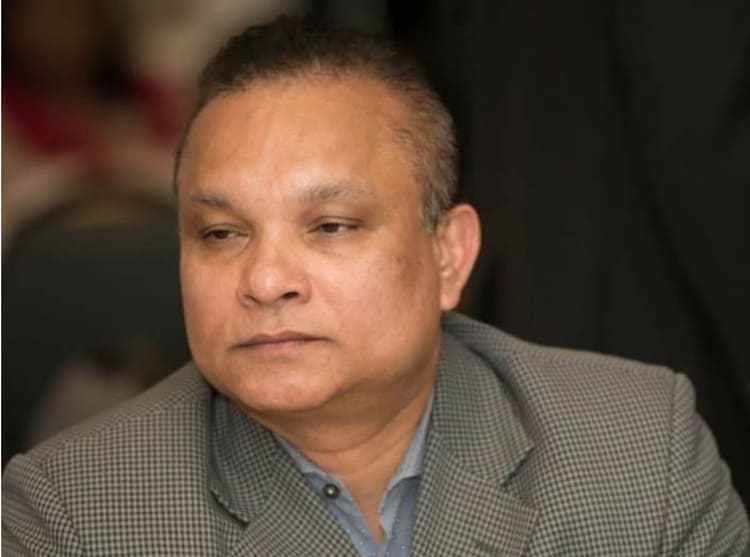Lessons from Cambodia’s response to Covid-19
Cambodia has emerged relatively unscathed from the pandemic

A “whole-of-government and whole-of-society” approach, including strong epidemiological surveillance mechanisms to detect and respond, real-time databases and risk assessment mechanisms, rapid response teams (RRTs), field epidemiology training, national public health laboratory capacity, and platforms for risk communication contributed to the successful response to Covid-19 in Cambodia.
On January 27, 2020, Cambodia confirmed its first case of Covid-19. It was one of the first countries to report a Covid-19 case after China. The second case of Covid-19 was a 38-year-old man, a Cambodian, in Siem Reap. By March 11, 2020, when the World Health Organization (WHO) declared Covid-19 a pandemic, Cambodia had confirmed five Covid-19 positive cases. On March 16, 2020 almost six weeks after the first reported case, the government closed all public and private educational institutions across the country, imposed travel restrictions, introduced a Covid-19 service charge for foreign arrivals amounting to US$3,000 and required that all in-coming travelers must purchase a health insurance package for any potential treatment valid for 20 days. Moreover, all travelers were mandated to self-quarantine for 14 days after arrival and undergo a second Covid-19 test on the 13th day.
In February 2020, the Ministry of Health (MOH) updated Cambodia’s existing pandemic response strategy in a new document entitled “National Action Plan: Preparing for and Responding to Novel Coronavirus (Covid-19) in the Kingdom of Cambodia” (Covid-19 Master Plan). This Plan defines strategic actions to coordinate the efforts of stakeholders in the government, as well as national and international partners. In addition to the government’s budget allocations to finance activities in the Covid-19 Master Plan, the government requested the World Bank Group to both activate the Contingent Emergency Response Component (CERC) under the ongoing Health Equity and Quality Improvement Project (H-EQIP) along withthe reallocation of US$14 million from other project components to the CERC. The government also requested a US$20 million Covid-19 Emergency Response Project (Covid-19 ERP) under the MPA-Program to finance the remaining activities under the Covid-19 Master Plan.
Implementation of the Covid-19 ERP is fully aligned with the national
system. It is seen as complementary to the government’s own efforts,
as are other forms of support for implementing the Covid-19 Master Plan
With no time to waste, the World Bank team worked closely with the government counterparts and in two weeks, by March 27, 2020, the CERC was activated. With the US$14 million reallocation, the government was able to procure 60 ambulances, medical equipment (including 370 patient monitors, 110 ventilators, and 37 mobile X-rays), a PCR (polymerase chain reaction) machine for enhancing capacity of the National Laboratory for testing Covid-19 and associated reagents and consumables, and capacity improvement of the laboratory staff at the national and sub-national levels to safely collect, transport and test for Covid-19.
Given that all agencies were in lockdown, all meetings, discussions and negotiations with the government counterparts and development partners were carried out by phone, WebEx, Emails, Telegrams, and WhatsApp. Often the Bank team worked through the night to move the process forward. The hard work paid off; the Cambodia Covid-19 project was approved on April 2, 2020 by a virtual meeting of WBG Executive Directors. Cambodia was proud to be one of two countries from the East Asia and Pacific Region included in the first batch of Covid-19 ERP approval. Next day, on April 3, 2020 the Credit Agreement was signed and it became effective three days later – April 6, 2020. One of the quickest agreements to become effective in the Bank history-- yet another record to celebrate!
Building upon a solid partnership with the government and development partners, the Bank team put together the Covid-19 project in a manner that complements the longer-term development work in the health sector.The Bank team made sure that the project’s objectives and design were in line with the request from the government and the investment is geared to help address critical gaps in implementing the Cambodia Covid-19 Master Plan. To this end, the activities supported under the project components included establishing and upgrading laboratory, isolation and treatment centers and equipping them with medical supplies and furniture and network installation, as well as financing the procurement of essential medical supplies and equipment as well as including continuity of essential services, such as case management and infection prevention and control.
Implementation of the Covid-19 ERP is fully aligned with the national system. It is seen as complementary to the government’s own efforts, as are other forms of support for implementing the Covid-19 Master Plan. This collaborative approach economized on human resources and time when MOH, the leader of the country’s response to Covid-19, was quite swamped. As of mid-September, US$10.5 million or 50 percent of the total US$20 million WBG credit had been disbursed, including contracts with UNICEF, UNDP and UNOPS and direct contracting with suppliers.
It is that as a result of these efforts, Cambodia has emerged relatively unscathed from the pandemic. The MOH says to date 283 cases of Covid-19 have been confirmed with no death. However, the country’s economy has been hit hard, requiring additional support from institutions such as the World Bank Group.
Dr Ziauddin Hyder is Health Nutrition and Population Cluster Lead, The World Bank Group




